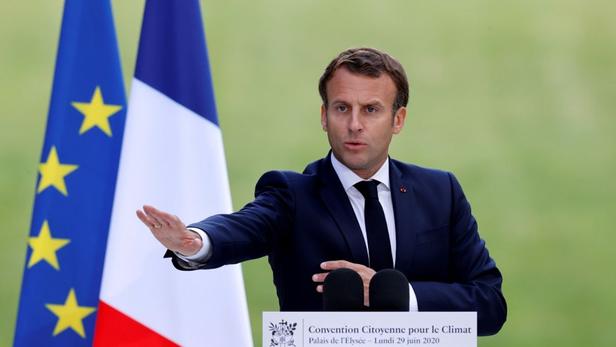A translation of an article from Le Figaro.
Replacing representative democracy with participative democracy is dangerous
Claude Sicard, economist and international consultant
July 6, 2020
Seeing his popularity ratings decline, Emmanuel Macron appeals to the French people for a reform. For this economist, the head of state’s seemingly bright idea is a mistake because making decisions concerning the future of a country requires thorough study and the assistance of experts.

The distance in our country between civil society and the institutions never stops increasing. In every democratic system it is the law that the majority prevails: the dominant fraction imposes its will on the minority, and the electoral moment is decisive for the duration of the mandate of the elected representatives. These principles are increasingly questioned these days. Minorities are increasingly unwilling not to be heard, and moreover they too often observe that the elected do not always have the virtues which they claimed to have during the campaign. Pierre Rosanvallon, a noted researcher of democracy, tells us that we are seeing in our modern democracies the rise of the “people as a judge”. The “monitoring citizen”, he says, is replacing the “voting citizen”. In this way a tendency has developed in our modern societies toward the creation of “counter-democracies”.
CEVIPOF surveys confirm this claim: 70% of the French think that in our country democracy “does not function very well”, and assert that they have no confidence in the ability of members of parliament to address issues that the country is facing. The American political scientist Yascha Mounk, a Harvard professor, writes in his book The People vs. Democracy published in 2018 that “in North America and in Western Europe, a growing number of citizens are turning their backs on democracy: they are feeling that they have less and less influence over political decisions”.
Emmanuel Macron, who had no personal experience in the exercise of power, has thus quite quickly found himself confronted by this sociology as he was carrying out his function as the President of the French. He had to face various powerful social movements from the moment that he attempted to implement the reforms that he had promised in his electoral platform. A string of strikes, more or less aggressive, then the famous peasant revolt of the Gilets Jaunes, triggered in November 2018 by a simple carbon tax levied on fuels, a revolt that has greatly rocked the economic life of the country by severe disorderly conduct in all the great French cities carried out every Saturday for more than a year. The revolt of the Gilets Jaunes has deeply affected the spirit of our President because its slogans such as “Macron resign” and “Macron go away” have been everywhere. Macron was hit hard by the marring of his name. Then came the COVID19 pandemic, which was accompanied by grave shortcomings of the our health system, forcing Macron to severely confine the entire population of the country to their homes for more than two months, depriving the French from the freedom of movement, their ability to work and to meet each other.
Very quickly, the opposition movements to Emmanuel Marcon have developed and gathered strength and rose up against the way this very young presdients exercised power. They accused him of being “Jupiterian”, and not sufficiently attuned to the people. Indeed, Macron has imposed his power from the outset on the National Assembly by having all the “Marchers”, the candidates for parliament for party, “La République En Marche!”, most of whom having not political experience, sign during the campaign for legislature a “contract with the nation” according to which they commit to support “all major projects” which comprised the platform of the president. Those members of parliament, of course, enjoy an overwhelming majority in the National Assembly.
Macron, scalded by the developments and by the numerous criticisms addressed at him, and seeing his popularity dropping, has decided to change his style and publicly confess to his errors. He undertook to show much more attention to his fellow citizens. And so we see him declare in regard to the Gilets Jaunes crisis on March 3rd, 2019: “By moving quickly, too quickly, we make mistakes”. Then, regarding the hospital crisis: “We have no doubt made a mistake in our announced strategy”. Finally, in his speech to the nation on April 13 he has humbly declared: “Let us learn to leave the beaten path, let us reinvent ourselves, let me be the first to do so”.
Where has this change, abandoning the Jupitarian posture and committing to reinvent himself, led our president? To undertaking to change our representative democracy to a particpative one.
Filed under: Academia, Books, Elections, Mass action, Opinion polling, Participation, Press, Sortition |



[…] This is the second and final part of a translation of an article by Claude Sicard published in July 2020 in Le Figaro. The first part is here. […]
LikeLike
[…] the face of the expected pushback from elite groups, the French public has shown significant support for the CCC itself and for its […]
LikeLike